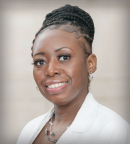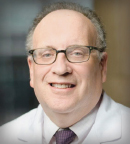Age discrimination, often referred to as ageism, is an increasingly pressing issue within society. Although it can impact individuals across all age groups, older adults are particularly vulnerable. According to the U.S. Census Bureau projections, by 2040, individuals aged 65 and older will represent 21% of the U.S. population. Despite this anticipated growth in the older demographic, ageism continues to be widespread.
An aging population correlates with a heightened demand for health-care services, increasing health-care use, and costs. Furthermore, negative perceptions regarding age and aging among many health-care professionals may contribute to workforce shortages in geriatric care. The consequences of ageism can also result in significantly poorer health outcomes for patients, adversely affecting their well-being and exacerbating gaps in social determinants of health.

Sincere McMillan, DNP, MS
Scope of the Problem
The prevalence of ageism transcends culture, ethnicity, and geography. It is regarded as one of the most socially acceptable forms of prejudice and can significantly shape how clinicians engage in shared decision-making with patients. The relationship between cancer and aging is extensively recognized, with age serving as a significant predictor for the onset of the disease. Research by Haase et al suggests that ageism can influence the quality of and accessibility to cancer care for older adults.1 Furthermore, ageism has been associated with increased levels of depression and a diminished quality of life among older patients with cancer. A survey conducted by Puts et al among Canadian health-care professionals revealed that 69% believed they were unprepared to implement geriatric oncology care models.2 Health-care providers and organizations must develop the necessary infrastructure to effectively address acute and chronic health issues facing older adults.
eLearning Module on Ageism
Providers should be trained to recognize ageism and its potential repercussions on health-care access, patient outcomes, and overall quality of life. To meet this need, the Geriatric Medicine Service at Memorial Sloan Kettering Cancer Center (MSK), in collaboration with the Fan Fox and Leslie R. Samuels Foundation, developed an interactive e-learning module aimed at helping clinicians recognize and combat ageism.
The module, divided into four chapters that can be completed at a participant’s own pace, provides a comprehensive approach to understanding ageism. The first chapter introduces participants to the principles of healthy aging, emphasizing the normal physiologic changes associated with aging. The second chapter defines ageism and explores its various manifestations both on a personal level and within society at large. The third chapter is distinctive in that it is dedicated to addressing ageism in oncology, including challenges such as the underrepresentation of older adults in clinical trials and the effects of ageism on patients seeking cancer-directed therapies. The fourth chapter offers practical strategies and insights for participants to dismantle barriers and address ageism effectively.
Guest Editor

Stuart M. Lichtman, MD, FACP, FASCO
Dr. Lichtman is Attending Physician (retired) at Memorial Sloan Kettering Cancer Center, Commack, New York; Professor of Medicine at Weill Cornell Medical College, New York; a consultant for Wilmot Cancer Institute Geriatric Oncology Research; and Past President of SIOG. Geriatrics for the Oncologist is developed in collaboration with the International Society of Geriatric Oncology (SIOG). For more information about geriatric oncology, visit www.siog.org and the ASCO Geriatric Oncology website (https://old-prod.asco.org/news-initiatives/current--initiatives/geriatric-oncology/resources).
By raising awareness of the impact of ageism on older individuals and dispelling prevalent myths about aging, clinicians may better understand the biological, psychological, and sociologic needs of their patients, irrespective of age. The module is set to launch in early 2025 on the MSK Geriatric Medicine website and will also be accessible through the MSK Continuing Medical Education (CME) website. Participants who complete the module in its entirety will qualify for CME credit.
Course fees are as follows:
- Clinicians, including physicians, nurses, nurse practitioners (NP), physician assistants (PA), and licensed interprofessional team members: $75 (USD)
- Students, including nursing, advanced practice provider (NP and PA), and medical students: $50 (USD)
- The course is complimentary for those who are in low- and middle-income countries.
Dr. McMillan is the Fellowship Coordinator for the Geriatric Oncology subspecialty track of the Advanced Practice Provider Oncology Fellowship Program at Memorial Sloan Kettering Cancer Center, New York. This is one of the nation’s first geriatric oncology subspecialty fellowship opportunities for advanced practice providers.
DISCLOSURE: Dr. McMillan reported no conflicts of interest.
REFERENCES
- Haase KR, Sattar S, Pilleron S, et al: A scoping review of ageism towards older adults in cancer care. J Geriatr Oncol 14:101385, 2023.
- Puts M, Szumacher E, Dawe D, et al: Never too old to learn new tricks: Surveying Canadian healthcare professionals about learning needs in caring for older adults with cancer. J Geriatr Oncol 12:262-273, 2021.

